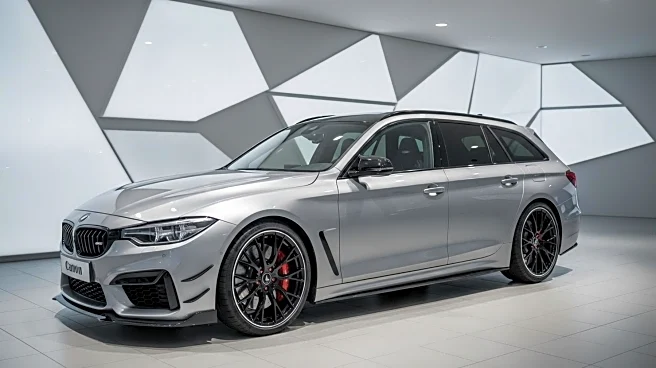What's Happening?
Performance wagons are experiencing a resurgence in the U.S. market, with models like the Audi RS6 Avant and BMW M5 Touring seeing increased sales. Audi reported a 41% rise in sales for its RS6 Avant, while BMW noted higher demand for the M5 Touring compared to its sedan counterpart. This trend is attributed to the unique combination of practicality and driving dynamics offered by wagons, which appeal to enthusiasts. Despite this, mainstream station wagons are being phased out, with Volvo discontinuing models like the V60 and V90, and other manufacturers focusing on SUVs.
Why It's Important?
The growing interest in performance wagons highlights a shift in consumer preferences, where buyers are willing to pay a premium for vehicles that offer both utility and sporty performance. This trend could influence automakers to reconsider their product offerings, potentially leading to more diverse vehicle options in the market. However, the decline of traditional wagons suggests a continued dominance of SUVs, which are often more profitable for manufacturers. The 'wagon tax' phenomenon, where used wagons command higher prices, underscores the demand-supply imbalance in the market.
What's Next?
If the success of high-performance wagons continues, manufacturers might expand their offerings, possibly introducing more models like the BMW M3 Touring or Mercedes E53 hybrid wagon. Electric vehicles could also play a role in reviving wagons, as their design often resembles traditional wagon styles. However, the economic uncertainty may lead companies to prioritize safer investments in SUVs and crossovers, which remain popular among consumers.
Beyond the Headlines
The resurgence of performance wagons could signal a cultural shift in automotive preferences, where features like manual transmissions and physical buttons are seen as luxury novelties. This could lead to a reevaluation of what constitutes a premium vehicle, potentially influencing future design and marketing strategies.








